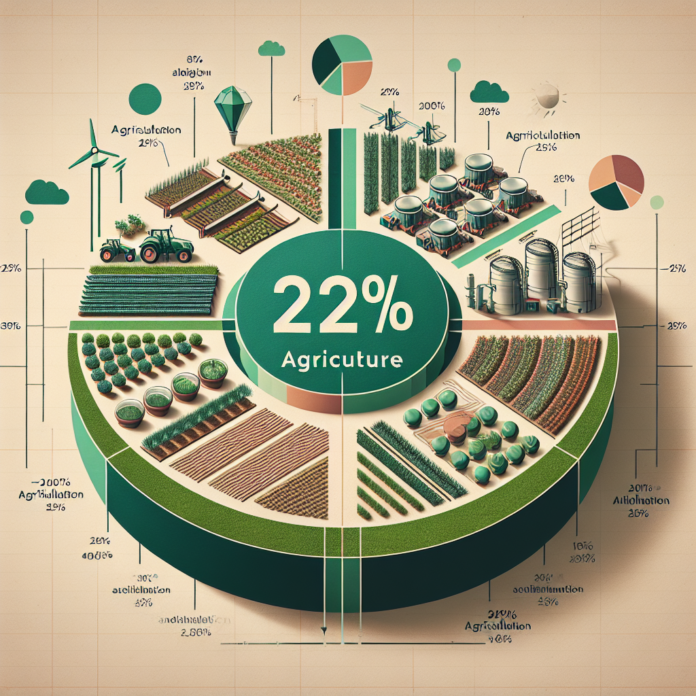Impact of FG’s 2% Budget Allocation on Agriculture in 2025
Examining the Impact of FG’s 2% Budgetary Allocation on Agriculture in 2025
As Nigeria approaches 2025, the Federal Government’s decision to allocate 2% of its budget to agriculture has sparked considerable discussion among stakeholders in the agricultural sector. This allocation is expected to have far-reaching effects on various aspects of farming, food security, and rural development.
Enhancing Agricultural Productivity
One of the most immediate impacts of this budgetary allocation is the potential increase in agricultural productivity. The funds can be directed towards improving infrastructure, such as irrigation systems and rural roads, which are crucial for farmers to access markets and resources efficiently. Additionally, investing in modern farming technologies and equipment can lead to higher yields and more sustainable farming practices.
Support for Smallholder Farmers
Smallholder farmers, who make up a significant portion of Nigeria’s agricultural workforce, stand to benefit greatly from this allocation. With targeted programs aimed at providing training, financial support, and access to high-quality seeds and fertilizers, smallholders can improve their farming practices and increase their income. This support is vital for enhancing food production and reducing poverty in rural areas.
Boosting Food Security
Food security remains a pressing issue in Nigeria, with many citizens facing hunger and malnutrition. The 2% budgetary allocation can be instrumental in addressing these challenges by funding initiatives that promote sustainable agricultural practices, improve food distribution networks, and support local food production. By increasing domestic food production, Nigeria can reduce its dependence on food imports and enhance its overall food security.
Encouraging Research and Development
Investment in agricultural research and development is essential for fostering innovation in the sector. With a dedicated budget, the government can support research institutions and universities in developing new crop varieties, pest control methods, and sustainable farming techniques. These advancements can lead to increased resilience against climate change and other environmental challenges that threaten agricultural productivity.
Promoting Agro-Processing and Value Addition
The budgetary allocation also presents an opportunity to promote agro-processing and value addition within the agricultural value chain. By investing in processing facilities and training programs, the government can help farmers transform raw agricultural products into finished goods, thereby increasing their market value. This not only enhances farmers’ income but also creates job opportunities and stimulates economic growth in rural areas.
Strengthening Agricultural Policies and Governance
A well-structured budget allocation can also lead to improved governance and policy frameworks in the agricultural sector. Transparency and accountability in the utilization of funds are critical to ensuring that resources are effectively channeled towards initiatives that benefit farmers and the broader economy. By establishing clear guidelines and performance metrics, the government can enhance the impact of the 2% allocation on agriculture.
Conclusion
In summary, the Federal Government’s 2% budgetary allocation to agriculture in 2025 has the potential to significantly enhance the sector’s productivity, food security, and overall economic development. By focusing on smallholder support, research, agro-processing, and good governance, this initiative can pave the way for a more sustainable and resilient agricultural landscape in Nigeria. Stakeholders must collaborate to ensure that these funds are utilized effectively, ultimately benefiting farmers and communities across the nation.


